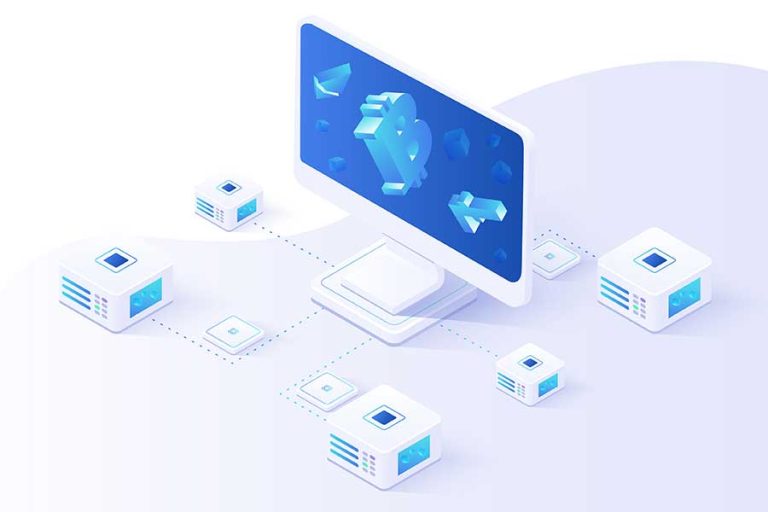
Blockchain technology has become a buzzword, often associated with cryptocurrencies like Bitcoin. However, blockchain extends far beyond digital currencies, with applications in industries ranging from supply chain management to healthcare. For beginners, understanding blockchain can feel like diving into a sea of jargon and complex concepts. This guide will break down blockchain in simple terms, demystifying its principles, uses, and potential impact.
At its core, a blockchain is a digital ledger—a record of transactions or data entries. What sets it apart is how this data is stored and secured. Imagine a spreadsheet duplicated across a network of computers, where every addition is shared and verified by all participants. This creates a decentralized and transparent system, where no single party has control.
Key features of blockchain include:
The process behind blockchain involves several steps. First, a user initiates a transaction, such as transferring cryptocurrency or recording data. This transaction is then validated by nodes in the network through consensus mechanisms like Proof of Work or Proof of Stake. Once validated, the transaction is grouped with others to form a block, which is cryptographically linked to the previous block in the chain. This link ensures security and continuity. Finally, the block is added to the blockchain, completing the transaction and updating the distributed ledger.
While blockchain is widely known for powering cryptocurrencies like Bitcoin, its applications extend far beyond digital currencies. In supply chain management, it enables real-time tracking and enhances transparency. In healthcare, blockchain securely stores and shares patient records, improving data integrity. The financial sector benefits from smart contracts, which automate and streamline transactions without intermediaries. Additionally, blockchain can power tamper-proof voting systems, ensuring fair elections, and revolutionize digital identity management by giving individuals control over their personal data and reducing identity theft.
Blockchain offers a range of advantages that make it a revolutionary technology. Enhanced security through cryptographic algorithms and decentralization reduces the risks of fraud and hacking. By automating processes with smart contracts, blockchain increases efficiency and eliminates manual intervention. It also lowers costs by removing intermediaries in industries such as finance and real estate. Furthermore, blockchain’s transparency allows participants to track and verify transactions in real time, promoting trust and accountability.
Despite its potential, blockchain faces several challenges. Scalability remains a concern as larger networks can slow down transaction speeds. Some consensus mechanisms, like Proof of Work, consume significant amounts of energy, raising environmental concerns. Additionally, the regulatory landscape for blockchain is still evolving, with governments worldwide working to adapt rules for its use. These hurdles highlight the need for continued innovation and collaboration to unlock blockchain’s full potential.
Getting started with blockchain involves learning the basics and familiarizing yourself with terms like distributed ledger, nodes, and smart contracts. Exploring platforms such as Ethereum, Hyperledger, or Solana can provide hands-on experience. Joining blockchain communities and participating in forums or events allows you to network and learn from experts. Additionally, online courses and certifications offer structured learning opportunities to deepen your understanding of blockchain technology.
As blockchain continues to evolve, its potential to reshape industries is immense. From decentralized finance (DeFi) to non-fungible tokens (NFTs), blockchain is paving the way for a more secure and transparent digital future.
For beginners, embracing blockchain might seem daunting, but with the right resources and a curious mindset, anyone can understand and leverage this transformative technology.
Wingu Technology specializes in leveraging open-source solutions to help businesses implement robust blockchain strategies tailored to their needs. Whether you’re exploring blockchain for secure data management, supply chain transparency, or decentralized applications, Wingu Technology offers expertise in building and supporting scalable platforms. Our team works closely with clients to design systems that integrate seamlessly with existing infrastructure while prioritizing security, efficiency, and compliance. By demystifying blockchain and aligning it with your business goals, Wingu Technology ensures you can confidently adopt this transformative technology to gain a competitive edge.
Wingu (pronounced wee-in-goo) is Swahili for Cloud. Swahili is a native language spoken in the central-east portions of Africa.
Copyright © 2015 – 2025 Wingu Technology Wingu Technology LLC. All Rights Reserved.
Logos and images displayed are trademarks or registered trademarks of their owners or its subsidiaries in the US and other countries.
Wingu (pronounced wee-in-goo) is Swahili for Cloud. Swahili is a native language spoken in the central-east portions of Africa.
Copyright © 2015 – 2025
Wingu Technology Wingu Technology LLC.
All Rights Reserved.
Logos and images displayed are trademarks or registered trademarks of their owners or its subsidiaries in the US and other countries.